Search Results
Showing results 1141 to 1160 of 1480
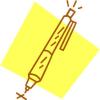
Where Was That?
Source Institutions
In this activity (9th activity on the page), learners work in pairs to see how their perception of touch differs from reality.
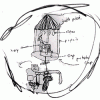
Art Cars
Source Institutions
In this activity, learners design miniature cars. Learners can create a telephone car, soccer car, merry-go-round car, or any other theme car they can imagine.
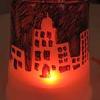
Night Lights
Source Institutions
In this activity, learners create night lights using a plastic cup, programmable PICO Cricket, tri-color LED, and sensor.
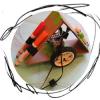
Push Pull Painter
Source Institutions
In this activity, learners create painting machines that can paint moving forwards and backwards.
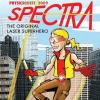
Spots, Lines and Lasers
Source Institutions
Learners shine the light of a laser pointer through sheets of fabric that all have a different number of threads per inch.
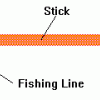
Become a Neurologist: Detective Threshold
Source Institutions
In this neuroscience activity (4th activity on the page), learners make their own set of Von Frey hairs to test detection thresholds.
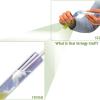
How to Extract DNA From Anything Living
Source Institutions
In this genetics activity, learners discover how to extract DNA from green split peas.
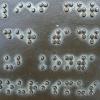
Finger Reading
Source Institutions
In this activity (10th activity on the page) about the sense of touch, learners make Braille letters out of cork or cardboard and map pins.
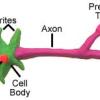
The Model Neuron
Source Institutions
In this activity, learners create a model of a neuron by using colored clay or play dough. Learners use diagrams to build the model and then label the parts on a piece of paper.

Pulse of Life: Measure Your Pulse
Source Institutions
In this activity, learners take their own pulse and explore how heart rate is affected by various activities.
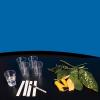
See the Colors in Leaves
Source Institutions
Learners use chromatography to separate and analyze the mixture of pigments in leaves. Use this activity to discuss photosynthesis as well as why leaves change color in autumn.
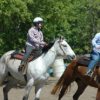
Take It in Stride
Source Institutions
In this health and fitness activity, learners focus on the importance of daily physical activity, specifically walking.
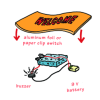
Keep Out!
Source Institutions
In this technology activity, learners build an "alarming" doormat to keep siblings out of their rooms. Use this activity to teach learners about circuits, switches, and sensors.
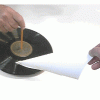
Groovy Sounds
Source Institutions
In this activity related to music and sound vibrations, learners make a phonograph or record player out of simple materials. First, learners assemble the turntable, arm, and sound cone.
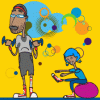
Moving to a Healthier Life
Source Institutions
This game presents you with several different choices you can make in the course of your everyday life to increase your level of physical activity and be healthier.
Jump on Tens: Counting Fun
Source Institutions
Learners combine counting, multiples, and number patterns with jumping up and down. To start, pick a counting number.
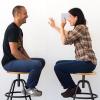
Cheshire Cat
Source Institutions
Can you deceive your eyes? When your eyes work normally, you see a nice 3 dimensional picture, but what happens when each eye sees something different?
Read the Label: Nutrition and Percentage
Source Institutions
This activity combines learning about nutrition, math of measurement and proportion, and healthy eating. Start by distributing food packages with Nutrition Facts labeled.
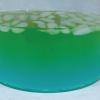
Ocean Currents
Source Institutions
In this activity, learners will explore how density is affected by temperature and how that can create currents.
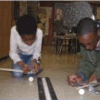
Kick Stick Challenge
Source Institutions
In this design challenge activity, learners investigate series circuits and motors to build a hand-held "kick stick." Their goal is create a battery-operated device that sends a Ping-Pong ball across
